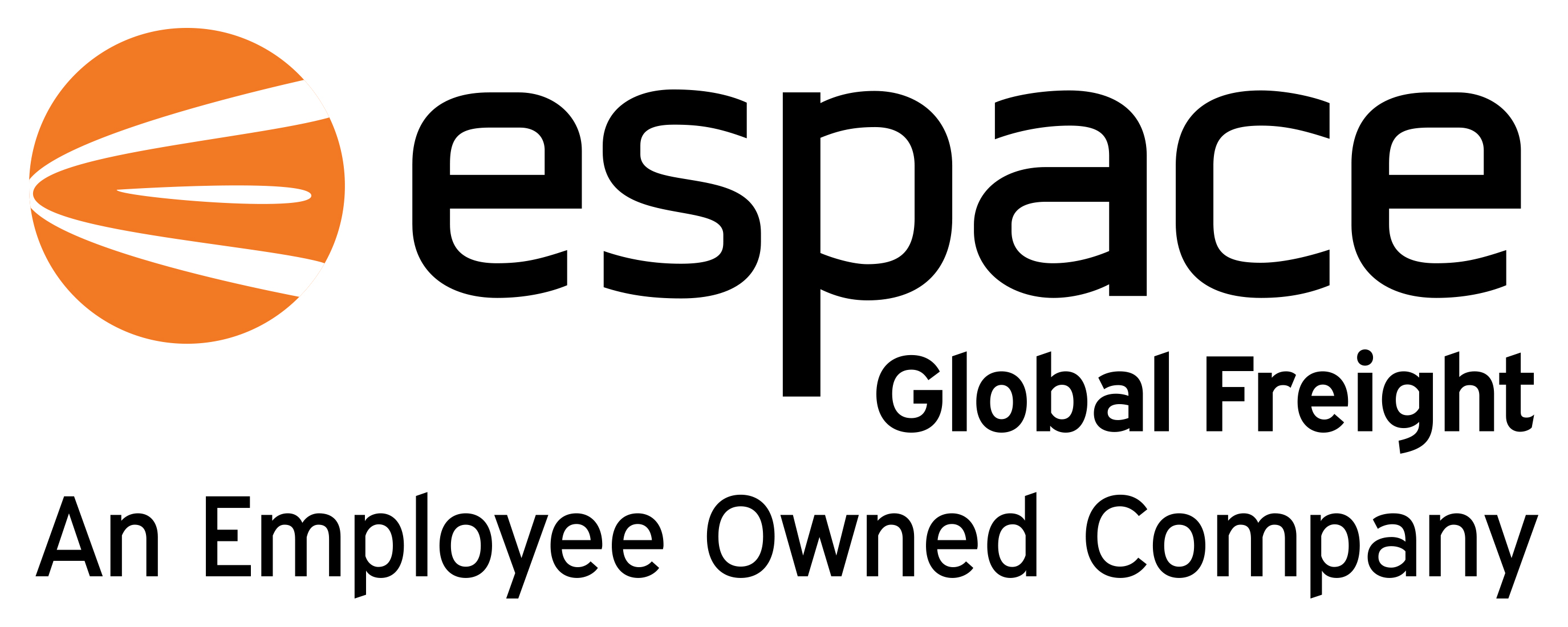 Add My Company
Add My Company
Sign In
Brexit Update
28-02-2019

No doubt you will have had a barrage of emails from freight forwarders over the last few months telling you what steps you need to take now in the event of a ‘No Deal’ on 29th March.
If Parliament cannot agree on a deal, it now looks like we will be heading towards an extension as it’s clear that there is a Parliamentary majority for not crashing out without a deal. Needless to say at the end of any extension period, if an agreement cannot be reached, the default position would still be ‘No Deal’ so we all still need to be making plans to deal with this eventuality.
Whatever happens; deal or no deal, how we trade with the EU will change in the future when we exit or get to the end of an agreed transition period. Customs intervention will be needed. Things cannot stay as they are as we will be out of the single market the Customs Union.
There is a possibility of an extension to Article 50 and transition period if we get a deal agreed. However, at some point, export and import declarations will need to be made and new procedures in place for the collection of any UK import VAT and duty. Our advice would be to look at these points now. Nobody knows what’s going to happen and when it will.
As there are very different implications for exporters and importers, I have summarised what I see to be the priority action points in two sections.
UK EXPORTERS
1. Register for a UK EORI number.
2. Choose an agent/broker to make your customs declarations for you if you cannot make them yourselves. Prices for basic entries have dramatically increased recently as demand is far outstripping supply. We can offer this service for you for both exports and imports.
3. Select a commodity code for your goods. Commodity codes classify goods and are a requirement for the customs entry.
4. Choose the correct CPC (Customs Procedure Code). CPC’s identify the customs regimes to which goods are being entered to or removed from. If it is a permanent export to EU it will be code 10 00 001. For other regimes such as; temporary export for an exhibition or for repair in the EU, it will be a different CPC code. More information on CPCs can be found at … https://www.gov.uk/government/publications/uk-trade-tariff-customs-procedure-codes/customs-procedure-codes-box-37
5. Review your contractual Incoterms as they will determine who is responsible for customs declarations and any EU import VAT and duty. Our advice would be that if you are exporting on Ex Works terms, as a bare minimum you take over control of the UK Export declaration. You may find FCA is a more appropriate incoterm to use.
6. The export declaration, sometimes known as a COPY 3 SAD, provides safety and security declarations along with permission for the goods to leave the UK territory.
7. Leaving the organisation of this HMRC requirement to the EU importer could result in delays trying to obtain clearance resulting in delays. The export declaration is your proof of export and should be retained in your records for 6 years. If you sell on DDP, Delivered Duty Paid terms, be careful, many people can interpret DDP terms as including EU VAT which you will not be able to recover. DAP Delivered at Place is another alternative INCO term which allocates responsibility for Import VAT and duty to the EU importer.
8. Consider Authorised consignor status. An authorised consignor is a person / entity authorised by HMRC to carry out customs transit operations. This allows goods to travel under bond to and from authorised premises. The Common Transit Convention (CTC) allows you to move goods across certain borders without paying import duties, until the goods arrive at their final destination where any duties and taxes will be accounted for. A transit declaration is raised and submitted electronically, it will indicate the transit points the goods will be travelling to and from e.g. Birmingham – Rotterdam. After the UK leaves the EU, the UK will stay in the CTC. There’ll be little change to the current process for using CTC after 29 March 2019. Further information can be found in the following link: https://www.revenue.ie/en/customs-traders-and-agents/transit/index.aspx.
9. If you wanted to look at this in more detail, we’d advise you engage a customs specialist. We can recommend a very good one.
10. EU Customs agent will be needed to perform customs clearance of any goods inbound from the UK. Your European customers will need to appoint a preferred agent to do this for them. The process is a lot quicker if they have a VAT and duty deferment account. We have access to a network of European customs agents. However, the normal procedure is for the EU importer to appoint their own agent and agree fees in advance.
11. WTO Tariffs. With a ‘no deal, no transition period’ we would not have a Free Trade agreement with the EU and our exports could have tariffs levied on them. Enter your commodity code into this website to see what the current EU tariff is on your goods for shipments from outside the EU. https://www.trade-tariff.service.gov.uk/trade-tariff/headings/0707?currency=EUR&day=8&month=1&year=2019
12. Pallets. Currently, for non-EU countries exporting goods to the EU, the EU require pallets to be heat-treated or cleaned to prevent contamination and specifically marked. As there is a huge shortage of these specific pallets in the UK, the likelihood is that the EU will waive this requirement for a period of time. Also, if you return pallets or any sort of packaging to an EU customer, this could be classed as a UK export and need an export declaration. UK customs experts are currently discussing this return packaging issue with UK Customs.
UK IMPORTERS
1. Apply for TSP (Transitional Simplified Procedure). It takes a few minutes only. https://www.gov.uk/guidance/register-for-simplified-import-procedures-if-the-uk-leaves-the-eu-without-a-deal. This appears to be the best solution for many traders. Only available to UK Importers. Applicants must be a UK registered company. The main benefits are (1) the application process is simple, (2) the importer pays duty (if any) by direct debit and (3) the import process does NOT require any form of entry at the UK Port of arrival; you need only present the importer’s EORI number, if asked. Final import entry is not due until the 4th working day of the following month. It is unclear at this point if your customs agent / broker can make this final import declaration for you. However, TSP is not available for all classifications of goods. The import of all non-controlled goods can be done via TSP. Traders using TSP will need their own duty deferment account in place by 30th June 2019
2. Make sure your EU supplier is aware of their responsibilities. They will need to have an export declaration made via their country’s Customs system. Goods cannot leave their country before permission to proceed has been granted by their Customs authority. They need to partner with a preferred customs agent / forwarder and contact their authorities for full governmental requirements.
3. If they do not have an EU EORI number they will need to apply for one.
4. More information will be needed on their invoices. Values and weights of goods for each commodity code, CPC codes and office of exit from EU. As with UK exports, you will need to pay attention to the INCO terms agreed with your supplier and these must be stated on their invoices.
5. Consider how you will pay VAT. The Government has stated that they will introduce Postponed VAT Accounting (PVA) in the event of a ‘no-deal’. VAT will not be applied on Imports at the point of UK entry. C79 VAT certificates will not be issued for goods using PVA. Instead a monthly postponed import VAT statement will be made available for importers via the Government Gateway service. The statement will indicate the total postponed VAT from the previous month in order to declare this on the quarterly VAT return
6. Consider how you will pay duty. For duty, there are a few options; a duty deferment account, FAS (Flexible Accounting System) payments or use an Agents Deferment account. Under TSP, duty will be taken by direct debit initially. By 30th June 2019, a financial guarantee will be needed for any duties deferred. As we will no longer be part of the EU, our Government has total control over UK import tariffs for imported shipments from EU and non-EU countries. They have confirmed that the new UK import tariffs will be issued soon and once available, UK importers should no longer use the current EU version. (See exports point 4.)
If you need any help or further advice please just get in touch. There’s a lot to take in for both exporters and importers. As far as customs is concerned, I’m very much self-taught. I have a couple of expert customs training / advisory companies that I have been working with. Anything I cannot help with, I’d be happy to pass their contact details on.
Best regards,
Tony Shally
Managing Director
For more information on Brexit Update talk to Espace Global Freight
Enquire Now
List your company on FindTheNeedle.

